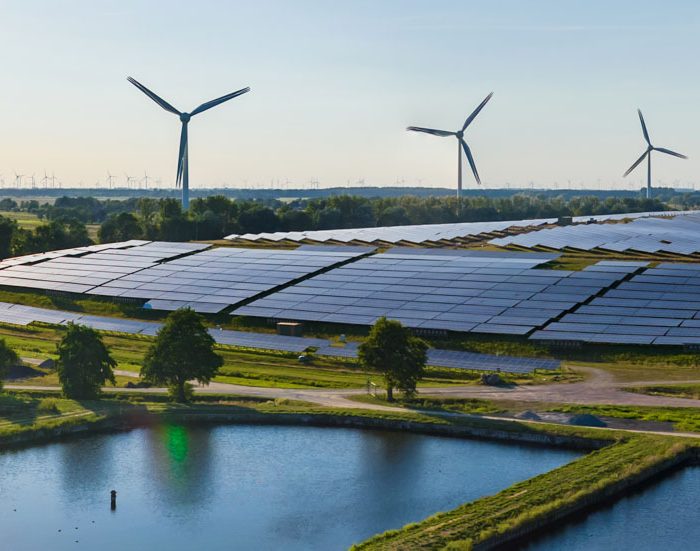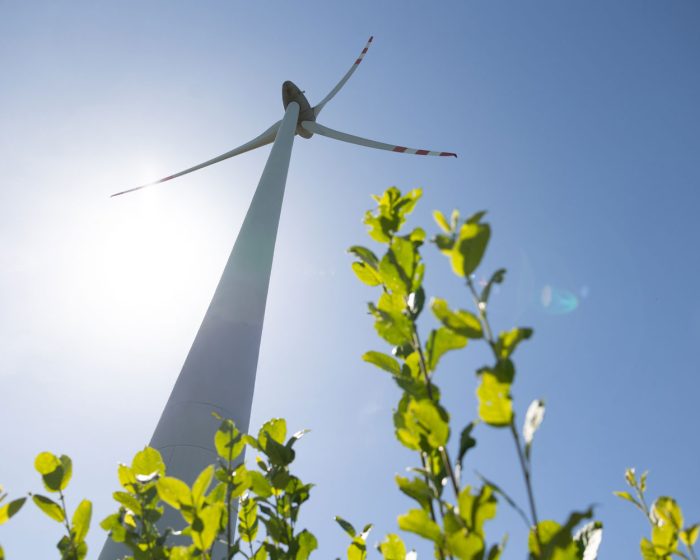The importance of renewable energy: the road to a cleaner future
Have you ever wondered what the world would look like if we exploited the full potential of renewable energy sources? Imagine cleaner air, lower energy bills and a stable electricity supply in every part of the world. Sounds like utopia, doesn’t it? But these goals are more achievable than you might think.
Renewables are more than just a technology – they are an opportunity for a better tomorrow. In this article, we will look at how renewables impact the environment and society, with real-life examples and comparisons to help you better understand their importance.
Reducing CO2 emissions: How RES contribute to the fight against global warming
- Renewable energy sources play a key role in reducing the effects of global warming. Unlike fossil fuels such as coal or gas, RES technologies produce electricity without emitting carbon dioxide (CO₂).
Solar, wind or hydroelectric power plants not only minimise the carbon footprint, but also reduce dependence on fossil resources. Examples from countries such as Sweden, where as much as 60 per cent of energy comes from RES, or Germany, where the share of renewable energy in electricity production is already 42 per cent, show that transition to these technologies can reduce greenhouse gas emissions by several tens of per cent over several decades.
Poland is also making progress – in 2023, as much as 27% of the country’s electricity came from renewable sources, helping to reduce CO₂ emissions by 38%, one of the best results in the entire European Union. The dynamic development of photovoltaics, which has increased its capacity by 260% in recent years, puts Poland at the forefront in terms of the pace of the energy transition.
Every step towards RES is an investment in a safer tomorrow, both for the environment and for the economy.
By investing in renewable technologies, we not only mitigate the effects of extreme weather events such as hurricanes or droughts, but also lay a solid foundation for a stable climate for the future. Every step towards RES is an investment in a safer tomorrow, both for the environment and for the economy. Energy transformation not only reduces CO₂ emissions, but also generates savings and supports the creation of new jobs, building a sustainable future for generations to come.
Renewable energy and human health: Reducing air pollution
Polluted air is one of the biggest health challenges of modern times, especially in urban areas. Coal- or gas-fired power plants emit harmful substances such as PM2.5, which have a direct impact on the development of respiratory and cardiovascular diseases. In Poland, where many cities regularly exceed acceptable air pollution standards, the problem is particularly acute. According to the European Environment Agency, smog in Poland contributed to around 40,000 premature deaths per year in 2022.
Renewable energy sources, such as wind and solar power, offer a viable solution to this problem. In European cities such as Copenhagen and Rotterdam, the development of renewable energy has allowed smog levels to be reduced by 20-30%, which has resulted in lower incidence of asthma and allergies, especially among children and the elderly. Poland is also seeing positive changes. In cities investing in renewable energy sources, such as Zielona Góra and Rzeszów, air quality has improved significantly.
Switching to clean energy sources is not only an investment in the environment, but above all in the health of the population. Lower emissions mean fewer hospital admissions, fewer days lost to illness and better living conditions. Every wind turbine or photovoltaic installation is a step towards cleaner air and a healthier future for us all.
Job creation: examples of industries growing through RES
The RES industry is one of the fastest growing economy sectors, offering millions of new jobs worldwide. In 2022, the global renewable energy sector will employ more than 13 million people, an increase of 700,000 compared to the previous year. In Poland, around 100,000 people already work in the RES industry, and this number is forecast to double by 2030.
Some of the most popular renewable energy occupations include photovoltaic panel installers, wind farm service technicians and energy storage system design engineers. Demand for solar panel installers has been identified by the US Bureau of Labor Statistics as one of the fastest growing in the world, with a projected job growth of 52% over the next decade. The development of smart grids is additionally opening up new career opportunities in the area of information technology and data management, making this industry also attractive for young IT professionals.
Many investments in wind farms or solar power plants are made in rural areas, contributing to the development of local infrastructure and reducing unemployment.
For example, the construction of wind farms in Pomerania has generated several hundred jobs, while increasing the revenue of municipalities through property taxes. Similarly, in Germany, rural regions such as Bavaria have benefited from RES investments through the creation of stable jobs, the development of local businesses and support for local communities.
Improving access to energy: projects in underdeveloped regions
Access to electricity remains a challenge for more than 770 million people worldwide, mostly in remote and rural areas.
Small-scale RES installations, such as solar micro-generation, are revolutionising daily life where the traditional power grid is unavailable or uneconomic.
In East Africa, photovoltaic projects are transforming the reality of hundreds of thousands of people.
In Kenya and Tanzania, small solar installations are providing energy to schools, enabling students to learn after dark, and in Uganda, medical facilities are using the energy to power vaccine refrigerators and emergency lighting, saving patients’ lives. In remote villages in Ethiopia, solar energy powers water pumps that facilitate access to clean water, eliminating the need for women and children to travel many kilometres.
Thanks to small-scale RES installations, local businesses are gaining new opportunities. In Rwanda, owners of small shops and workshops benefit from cheap and reliable energy, allowing them to extend their working hours, increase their income and expand their businesses. Such projects not only improve the quality of life, but also support the development of local economies, bringing in new jobs and reducing poverty.
Education and public awareness: the key to changing attitudes
Knowledge is a powerful tool – it allows us not only to better understand the world around us, but also to use it consciously, to develop ourselves and to make smarter decisions.
A deeper understanding of renewable energy sources (RES) opens up the possibility to look at everyday life from a new perspective: how solar energy works, why wind turbines spin so efficiently, or how geothermal energy can heat our homes.
This knowledge is not just dry facts – it is the key to using the resources that nature offers us in a responsible and sustainable way.
Educational programmes such as the Pure Power of Energy play an important role in creating awareness and developing practical skills and knowledge about renewable energy sources. Not only do they help students understand how solar, wind or geothermal energy works, but they also shape responsible environmental attitudes. In this way, young people learn how to use our planet’s resources wisely and care for the environment.
RES-related educational projects have the potential to spark students’ interest in science and demonstrate the practical application of the knowledge they acquire at school. In the course of such projects, students have the opportunity to develop technical and analytical skills that can help them choose a career path in the booming green technology industry in the future.
Such educational initiatives also help to educate everyone by introducing them to the various aspects of renewable energy use, providing them with proven knowledge on the subject and ensuring that they find answers to the questions and concerns that have been raised about RES.
Read also

What is renewable energy?
The best way to explain renewable energy is to start with a definition of non-renewable energy. Since the industrial revolution, humans have relied primarily on non-renewable energy sources. First there was coal, then came oil and gas. The problem with these resources is that access to them has been limited and using them to produce […]

The economic secrets of RES. What does renewable energy do to our wallets?
Renewable energy sources are a relatively new part of our energy reality and as a result, many myths have grown up around them. In this article, we will take a look at the most commonly asked questions and economic concerns about RES. We will explain their causes and show the costs and benefits of renewables […]




